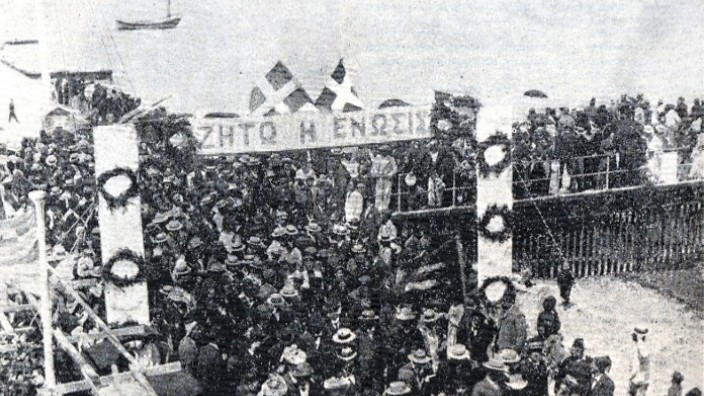By Victoria Loutas.
On December 1, 1913, Crete was officially integrated into the Greek state. The union came after Crete suffered centuries of warfare and Ottomon leadership, making this new unification even more significant.
Cretan History:
In 1669, Crete fell to the Ottomon Empire, ending the previous Venetian occupation of the Island which had lasted over 450 years. The entire period was a difficult and often bloody struggle for the people of Crete, as they suffered to maintain their rights and welfare.
Over the centuries, there were several unsuccessful revolutions and uprisings, which often led to worsened conditions for the Cretans.

Years later, Crete took part in the Greek War of Independence in 1821. Whilst the majority of Greece succeeded, Crete did not. The large number of Turks and Turko-Cretans on the island and the lack of supplies restricted their ability to conquer their own independence.
Even though Cretans fought for their independence as hard as mainland Greeks and made the same sacrifices, the Great Powers had prevented Crete from joining Greece and becoming part of the new Hellenic Nation.
Over the next 90 years, the Cretans continued their struggle and led several more uprisings against the conqueror. The most successful of course being the Great Cretan Revolution, where Crete gained its autonomy under the blessings of the Great Powers.
Under the protection of the Great Powers and the high sovereignty of the sultans, the Cretan state was created during 1898 – 1913.

Announcement of the Union:
On November 1st, 1913, Sultan Mehmed the 5th resigned from every right of domination over the Great Ocean. It was exactly one month later when Crete was officially incorporated into the Greek State.
The joyous event was held in sunny Chania in Crete, on Sunday December 1, 1913. In the presence of King Constantine and Prime Minister Eleftherios Venizelos.
In what is often described as a festive atmosphere, this day marked a significant occasion for the people of Crete, indicating the end of their centuries of struggle. At last Crete was free and officially included in the Greek state.
